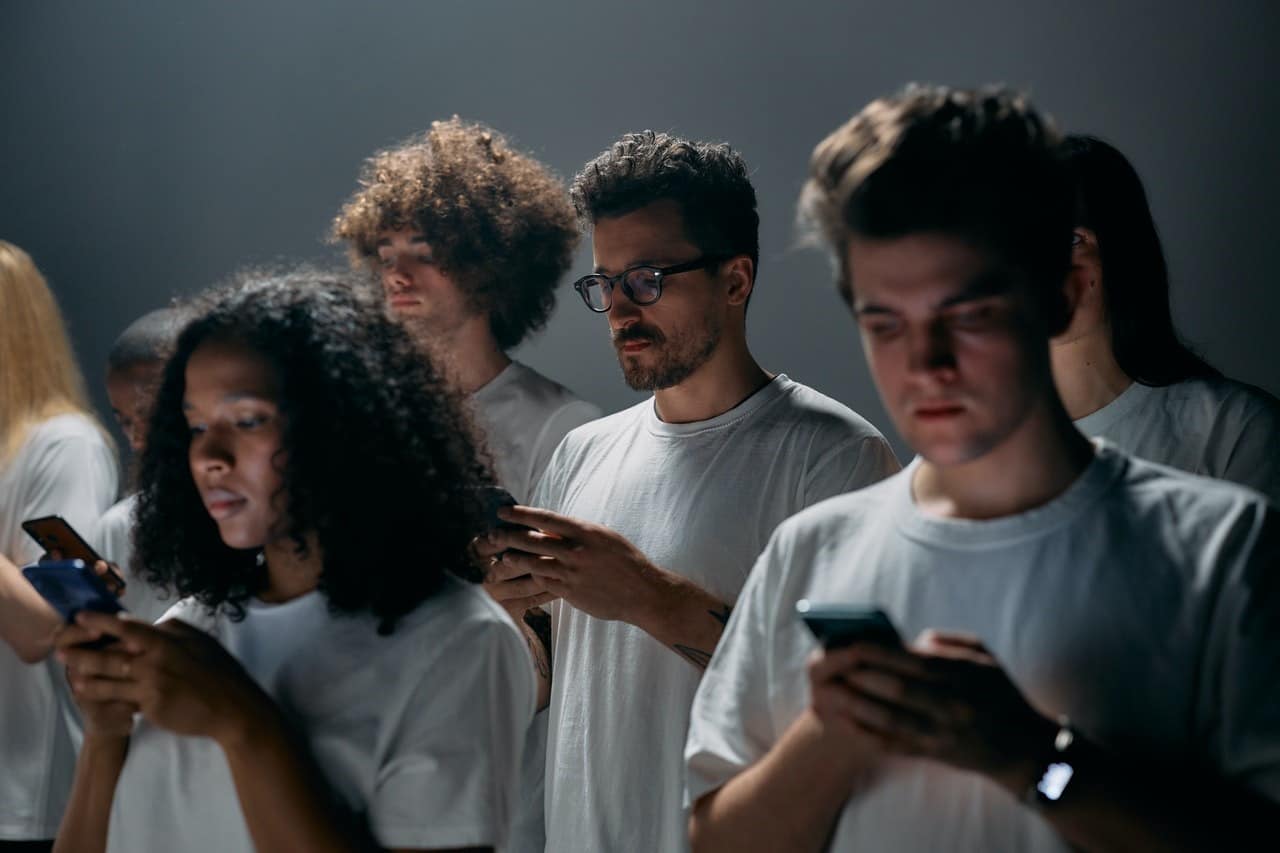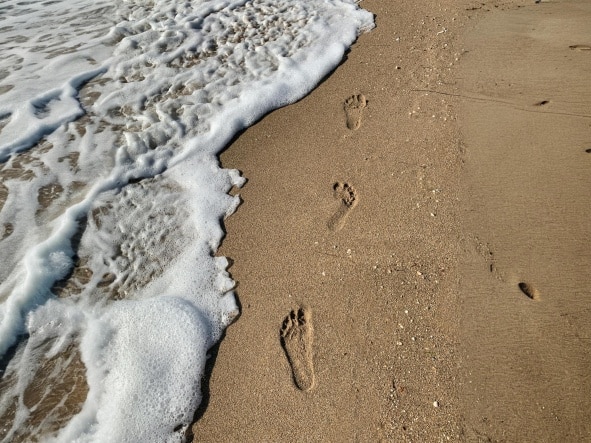Reputational crises in companies are one of the most complicated problems to foresee and they undoubtedly have a great negative impact.
To give more context, we will go deeper into what reputation crises are, with data and concrete examples, to see how far the consequences can go.
What are reputational crises and when can we really consider it as such?
If so, we can help you. Find out more without obligation
We can simply define a reputation crisis as an isolated event over a period of time that negatively affects a company.
Over the years, we have seen companies go under and others simply suffer and pass through crises.
This is because reputation crises are not all the same.
And so, before analyzing whether it is a crisis or not, we must list 3 key points in the 21st century to understand why crises become crises and what lies behind them:
The interconnection of people
Let’s start by saying that we live in a digital age, where we are all connected in some way.
This allows news and information to travel in a way that has never been possible before. This is a factor that must be taken into account and is also impossible to control.
For this example we use the case of the Reddit group r/wallstreetbets and Gamestop. It is not a typical case of a reputation crisis, although it negatively affected the online broker Robinhood and financially (losses of 5.05 billion dollars) companies that sold short (betting that it would go down) Gamestop shares.
The case is simple, one analyst said the company’s stock would go down and just saying so would make it happen. One Reddit group, the r/wallstreetbets, opposed this ‘dogma’ by massively buying up shares in the company, causing companies that had bet against Gamestop to lose millions. To add fuel to the fire Elon Musk, with a single tweet, further encouraged the rise with an impressive $483 per share on January 28, almost 190 times the all-time low of $2.57 reached in April 2020.
As we see in this case, a relatively small community or an influencer can easily magnify facts in a short time.
Social oversensitization and polarization
On the other hand, we also have the social hypersensitization that polarizes us in the face of certain social issues, such as environmentalism, racism, feminism, the defense of animal rights, politics,…
With this we come to say that sometimes it is not enough what we or our brand think, but what society or a certain group will think.
An example of this is the crisis H&M suffered in 2018 with its ‘Coolest monkey in the jungle’ sweatshirt, which featured a black child in its catalog. From H&M it was not seen as offensive but many groups and influencers saw it as a racist attack which triggered a reputation crisis.
Something that apparently has no major relevance acquires a colossal magnitude thanks to the fact that in social networks there are all kinds of people and groups connected.
Superficial crises and deep crises
Finally, another important aspect is the consequences of the crisis once it has passed .
For example, a case such as the H&M case, in which there were no victims, is not the same as the Volskwagen crisis with the vehicle emissions scandal, in which the company deliberately lied (and cheated) to governments and customers around the world.
This aspect must be taken into account and can only be measured in the long term.
If a crisis damages society or the world in any way, as in the case of Volkswagen, the long-term consequences are permanent and difficult to reverse. Returning to the case of H&M, according to the data, the crisis has not affected its annual net sales. Volkswagen, apart from having to pay astronomical fines, has lost consumer confidence and sales.
How do reputation crises originate?
Reputational crises manifest themselves in many ways, but in all of them there is one thing that makes them explode, and that is brand exposure.
The channels that tend to be catalysts are the press and, above all, social networks .
As we have said before, crises have several components and one of them is polarization and social groups, which premeditatedly or unconsciously are generated in social networks.
People tend to be connected with people who are like-minded to their ideals or way of thinking, and when one of these people shares something that outrages them about a brand, it is likely to outrage the entire group. If this person is a minimal media influencer, the possibility of it becoming a crisis multiplies exponentially.
Another interesting thing about how reputation crises originate has to do with their origin. By this we mean whether it is originated by a brand problem, by responsible persons or by ambassadors, who with their actions splash the brand they represent.
These are usually the three most common cases, but the differences are important.
If we look at the data, those originated by people responsible for the company or brand ambassadors have a very high media impact, but in the long run they are less damaging than those originated by the brand itself.
An example is the relationship that Lance Armstrong and Nike had back in the day. When the cyclist’s doping case was uncovered, the brand quickly broke with the athlete, but the evil had already been done and the famous slogan Just do it was marked as a motto of what Armstrong did to get to the top. A loss of some 30 million was estimated for Nike but in the long run this has been a one-off and almost anecdotal for Nike.
How to act in a crisis?
We reiterate that the vast majority of crises are isolated events that we cannot avoid .
Let’s say they are like an accident; we can take measures to avoid them with alert services but they usually occur in totally unexpected ways.
That is why when they occur we must know how to act. There is no manual to use but there are some recommendations that we can give based on past experiences and specialists in the field.
The first thing to do is to analyze whether what has triggered the crisis affects the brand in a superficial or profound way. Based on this, we can choose whether not to act or to act.
Although it may seem counter-intuitive, one of the first things recommended is not to act in the face of a potential crisis . Sometimes, a crisis is an action taken by the company analyzed from a specific context. That is why we must understand the scope and, above all, the path it can take.
In these cases the solution starts with a specific action with the person or persons affected, if any, than making a statement and making this make a pimple become a mountain.
How many brands have we seen that, because they wanted to make clear certain aspects that did not reverse this type of communication, created their own crisis based on their followers.
On the other hand, if in a crisis there is personal or material damage, it is certain that we will have to act quickly. In these cases we must understand that there will almost certainly be economic consequences, but the most important thing is to limit the impact on the company’s reputation.
If we have insurance for the most complex cases, we will be covered against this type of unforeseen events, and here the important thing is clear communication because this type of crisis is the one that has a negative impact in the long run.
Finally, we must say that it is only after a reputation crisis has passed that we can really analyze the impact we have had. In the heat of the moment people tend to be quite irrational and emotional, but over time we tend to put things into perspective.
If we have been honest and our actions prove it, crises are temporary and do not affect the company for a long time. On the other hand, as expected, if we have not been transparent, honest or have directly committed despicable or illegal acts, our reputation will be permanently affected in most cases.
Consequences of crises in large brands
It is in the big brands where we can see huge impacts on economic issues and media exposure with crises. On the other hand, they are big brands, so they usually recover, but not before suffering millions of dollars in losses and ridicule from society.
Let’s look at three rather serious cases to see it in context:
Boeing and the 737 Max crisis
This is possibly one of the most complex cases of brand reputation crisis. Two accidents and nearly 350 fatalities in less than 6 months put the Boeing 737 MAX on the ground and the company on the ropes.
Two hundred of the 350 units in service were recalled, hundreds of orders were cancelled and the company’s stock dropped 6 percent of its value (about $26.6 billion).
At the same time, companies such as American Airlines and Southwest Airlines saw their operational autonomy limited, as they had large numbers of these aircraft in their fleets, losing 140 and 225 million dollars, respectively.
On the other hand, lawsuits were also filed by associations, companies and authorities because it was understood that there was negligence in the manufacture of the devices.
This is a totally unpredictable type of crisis and reacting quickly and transparently helps to mitigate it somewhat. Boeing cautiously proceeded to do so, and managed to get ahead little by little.
Facebook and Cambridge Analytica
It is considered one of the worst crises in history and one of the worst managed.
There is little left to say about the Facebook scandal and the leaking of millions of users’ data to companies like Cambridge Analytica, which they then used to manipulate elections through fake news, user suggestion and other trickery.
Once the whole affair came to light, the company came to a standstill.
Faced with the lack of response and as a repulse, a hashtag #DeleteFacebook was created, which was trending throughout the process.
Mark Zuckerberg was asked to testify before the US Congress and everything was settled with “It was my mistake and I’m sorry”.
However, for millions of people, Facebook is no longer the same. That is why the company has tried to wash its image by associating the parent brand with its other acquired companies, such as Instagram or Whatsapp, by adding the from Facebook.
And more recently, they have changed the name of the parent company to Meta, which is seen by many as an attempt to change what the company has been doing for years.
Volkswagen emissions in the U.S.
In September 2015 was when the scandal of illegal software installed in 11 million diesel vehicles sold between 2009 and 2015 to alter the results of technical controls jumped.
The vehicles included sophisticated software that detected when the vehicle was undergoing official emissions testing and then changed the engine controls to minimize emissions during the test, which in real-world conditions was up to 40 times higher.
Basically, the problem was internal to the company, since a group of engineers, unable to develop a system to minimize emissions, decided to use software to control them. The problem is that this supposed patch was the long-term solution.
The consequences were the resignation of the CEO, Martin Winterkorn and in October 2016 Volkswagen agreed with the U.S. authorities to pay $17.5 billion as compensation to the owners of the affected vehicles and dealers.
Acting illegally and knowingly is the worst thing for companies because it is not only a crisis of reputation, it is a crisis in the very foundations and values of the company and that affects consumers, losing their trust permanently.
Consequences of crises in SMEs
We don’t always have to talk about reputational crises in big brands. Even if brands are smaller, they can also suffer from online reputation issues.
Not being in the media does not mean that they do not have them, and what is more, in many cases it is often a matter of life or death for these companies.
Let’s look at two cases we have seen up close at RepScan.
Software start-up in growth phase
This company has had a reputation crisis that is out of the ordinary, but which greatly affects the continuity of the company.
In his case, the problem was having negative reviews of a former employee on a job portal. Specifically, a former employee left several reviews with different profiles created on purpose for this purpose.
The consequences for the company were the loss of financing, as the company was in the middle of a Series A (approximately 3 million euros) and during the due diligence an investment fund reviewed these criticisms and rejected the investment in the company as they did not consider it a good place to invest.
This gives us to understand that anything, no matter how small, can affect us immeasurably.
Franchise in expansion
The case of this franchise is that it promised conditions and returns that were not fulfilled by the franchisees.
It promised a profitable and sustainable business model in a short period, where the investment was amortized in 6 months, the franchisees earned money and all with the commitment that the company would get them customers through an App.
The controversy over the failure to deliver what was promised has led to complaints from franchisees in several countries and press releases that speak of this alleged scam, and even a lawsuit for fraud has been admitted for processing.
The company now has a serious reputational problem, as it is difficult for it to sell franchises in these locations despite the fact that the defendants account for less than 1% of all its franchisees.
With this we can say that a small number of unhappy customers can sink your reputation if they are not taken care of correctly.
Final conclusion
Any company can suffer a crisis today. The key is anticipation through prevention and prevention and monitoring.
Some sectors are more prone to suffer from them, such as telecommunications, energy, banks, politics, technology companies and food companies.
The best way to avoid them is prevention, to have an action plan and even to have reputational insurance to help us minimize problems when they occur.
On the positive side, we currently have specialized companies such as RepScan with which companies can be sure that their potential crises will be controlled, and even companies can control their digital image and eliminate the effects of fake news or negative content on the network.




















